 “The recent scare story about unauthorized movement of an army unit to Delhi was a non-event that was blown up to make it look like a coup against the government. It is part of the continuing effort to discredit the army chief for his tough stand against corruption. Sonia Gandhi confidante Brajesh Mishra seems to be a key figure in this campaign against the Army and its chief .” – Dr Navaratna S. Rajaram
“The recent scare story about unauthorized movement of an army unit to Delhi was a non-event that was blown up to make it look like a coup against the government. It is part of the continuing effort to discredit the army chief for his tough stand against corruption. Sonia Gandhi confidante Brajesh Mishra seems to be a key figure in this campaign against the Army and its chief .” – Dr Navaratna S. Rajaram
 A strange thing happened on the way to a supposed coup attempt that apparently ‘spooked’ Raisina Hill (where the PM lives) in January. It just melted until it reappeared suitably sensationalized ten weeks later, not in the streets of Delhi but the front page of The Indian Express. Needless to say the financially struggling Express sold many more copies than it normally does on that day. This was followed by its editor-in-chief Shekhar Gupta being a prime exhibit on the news channels helping his paper boost its sagging sales, at least temporarily.
A strange thing happened on the way to a supposed coup attempt that apparently ‘spooked’ Raisina Hill (where the PM lives) in January. It just melted until it reappeared suitably sensationalized ten weeks later, not in the streets of Delhi but the front page of The Indian Express. Needless to say the financially struggling Express sold many more copies than it normally does on that day. This was followed by its editor-in-chief Shekhar Gupta being a prime exhibit on the news channels helping his paper boost its sagging sales, at least temporarily.
The story was absurd to begin with. Delhi has one of the largest military cantonments in the world in which more than 30,000 troops are stationed, while the units moving into Delhi numbered a total of some 400 soldiers—hardly a major threat. Such movements, which are routine exercises, are needed to test the preparedness and speed of response of security forces. For example, can security forces respond rapidly enough in the event of a terrorist attack in the capital? When there was a terrorist attack on the Indian Parliament a few years ago, the security forces were ready to respond thanks to which lives of the MPs and the Vice President were saved though several security guards including a brave woman laid down their lives. This was possible only because of mobility drills like the one that spooked The Indian Express.
Even more absurd, the website Rediff.com had carried a detailed and factual account of this army drill on 13 March 2012 in which it was reported said Army had discovered some deficiencies in its logistical preparations and deployment [read full report here]. The drill was intended to correct them. The Express reporters including its editor-in-chief Shekhar Gupta had trumpeted their story using the whole front page without doing their homework. Gupta didn’t actually spell out the word “coup” but carried enough insinuations as to leave the reader in no doubt about it.
Even if it was meant as a warning it was nearly three months too late; the exercise was over in January while the sensational story appeared only in April. Had there really been a coup in January, the reporters who wrote the story, including the “spooked” Shekhar Gupta would have been shot by the new rulers! In short it was a hatchet job pure and simple on the army and its chief. The Express story will go down in journalism textbooks as a classic case of “plant journalism”.
 Sensationalism
Sensationalism
For a long time The Indian Express used to be controlled by the late Ramnath Goenka whose name has become a by-name for fierce independence. Several important journalistic awards like the Excellence in Journalism Awards are named after him. It has had a distinguished roster of journalists and writers like Arun Shourie, S. Gurumurthy and others writing for it. The present chief editor Shekhar Gupta is neither in their independent mould nor does he have the character to rise above partisanship and petty politics. In short, he is easily manipulated by the powers that be. This is what R. Kashyap who has observed the Indian media for a long time noted:
“Printing almost 11 weeks after the alleged episode, Gupta should have asked himself – and his sources—that if the danger of a coup indeed existed at the time, why had Government not asked the General to resign after it was aborted? Alternately, why had it not either relieved him from the charge by asking the next man to take over, or why had it not just sacked him?”
Why indeed? Mr. Kashyap provided the following explanation: “Gupta and his colleagues were probably too beholden to their source(s) to say no—and delivered a command performance. Its success depended upon the readers of his newspaper falling for the fable. But the Indian people have always had the uncanny knack of skirting propaganda and arriving at the truth by their own means. So it was the Great Editor who made a fool of himself, for he could not fool the people.”
In other words Gupta and his paper were acting as conduits for planting propaganda as “news” at the bidding of some political masters. In other words, the “command” to plant the story came from someone so high that they dared not refuse. Willingly or unwittingly, Shekhar Gupta and his colleagues at the Express have brought to light two evils that plague journalism today—sensationalism and “planted news”. In the words of Mr. Kashyap:
“Sensationalism is currently the bedrock of Indian journalism. In keeping with the decline in every aspect of our private and public life, our media has also deteriorated. But even by the known standards of our degradation, the full page story on the front page of The Indian Express (2 April 2012), bearing the byline of the editor in chief himself, strikes a new low. Never in living memory has a single story grabbed the entire front page of a newspaper; a major event like the Bangladesh war might have dominated page one, but there would be other supporting stories on the same issue.”
 Puppet and the puppeteer
Puppet and the puppeteer
To their credit both the Prime Minister and the Defence Minister denounced it calling the fabricated story the work of anti-national interests and the story soon began to unravel as Shekhar Gupta ran for cover. He will have to live the rest of his life carrying the label of an agent of anti-national interests trying to create a divide between the armed forces and the government. But Gupta was just a puppet, the million (or billion) dollar question is—who was the puppeteer?
It will probably be some weeks, possibly months before the whole story unravels, but there are some straws in the wind. Soon after the coup to plant a coup in the news unraveled, an eighty-four year old fossil called Brajesh Mishra came out of the woodwork and denounced the army chief General V. K. Singh as the “worst army chief in India’s history.” Why, when Gen. Singh has never lost a battle, and has a distinguished record in fighting insurgencies and terrorists? To go with it, he has drawn public attention to corruption in military procurements. And that is his problem—for he stands in the way of people interested in what in a previous column I called the “Bofors Paradigm”. It is a paradigm that looks at the military as a source of procurement rather than as a force to defend the nation. (It was introduced by a family that escaped to Italy during the Bangladesh War.)
 And who is this Brajesh Mishra who called V. K. Singh the “worst army chief in history” and demanded that he be sent on forced leave? Is he a military expert? Hardly, he was the National Security Advisor in the NDA Government where he had a most undistinguished record. Mr. Kashyap makes the following interesting observation: “If the intent was to ensure the immediate sack of Gen Singh—to augment a previous demand by the NDA’s national security adviser Brajesh Mishra who inexplicably received a Padma Vibhushan from the UPA, allegedly for reasons of proximity to its reigning monarch—Gupta should have paused before leaping without looking.”
And who is this Brajesh Mishra who called V. K. Singh the “worst army chief in history” and demanded that he be sent on forced leave? Is he a military expert? Hardly, he was the National Security Advisor in the NDA Government where he had a most undistinguished record. Mr. Kashyap makes the following interesting observation: “If the intent was to ensure the immediate sack of Gen Singh—to augment a previous demand by the NDA’s national security adviser Brajesh Mishra who inexplicably received a Padma Vibhushan from the UPA, allegedly for reasons of proximity to its reigning monarch—Gupta should have paused before leaping without looking.”
So here is the clue—Brajesh Mishra is close to the dynasty though he served in the NDA. It may be noted that his daughter Jyotsna is married to an Italian and lives in Italy. But more significantly, as Prime Minister Vajpayee’s secretary during the NDA regime, Mishra rescued Rahul Gandhi when he was detained in the Boston Logan Airport by the U.S. Drug Enforcement Authority (or the FBI) for carrying a huge amount of unaccounted cash—more than $200,000—in his briefcase. (U.S. law limits the cash that can be carried to $10,000.) This was reported in The Hindu on September 30, 2001. [The news item with reference to cash amount has been deleted from the Times of India website and edited out of The Hindu report – Editor.]
So that was what earned a Padma Vibhusan for Brajesh Mishra. Padma Vibhushan is a very high civilian award. As a basis for comparison here are two awardees—Field Marshal Manekshaw and nuclear physicist Dr. Raja Ramanna. They are now joined by one Brajesh Mishra. (It is fortunate they are not here to witness it.) It is not just in journalism that standards have deteriorated. Look at who was the President that gave the award to Brajesh Mishra.
 A real coup that failed
A real coup that failed
While Shekhar Gupta and some politicians have raised a hue and cry over this non-existent coup of their own imagination, it is instructive to recall that the last time there was an attempt to drag the army into politics was during the 1975-77 Emergency. Prime Minister Indira Gandhi asked for the Army’s support in the venture, but the then Army Chief of Staff General Tapishwar Narain Raina bluntly told the Prime Minister that the army would not be used to “further her ends” but obey only those orders of a “legally construed government.” This was considered a crucial moment that kept the Indian Army out of politics at a critical juncture. The real dictator during the Emergency was Sanjay Gandhi who was head of the Youth Congress but held no elective office. Just think of what horrors might have been inflicted on the country had Sanjay Gandhi gotten hold of the army for his murderous activities.
This is not the end of the story, for Sanjay tried once more. Two years later, when the Congress had lost the election, General Raina accompanied by his deputy General S. K. Sinha came to see Indira Gandhi to commiserate with her over her election defeat. Sanjay coolly suggested that the Emergency could be re-imposed with the Army’s cooperation. As he saw it there were enough battalions in the Indian Army to occupy the country using one battalion per district, while the police could be used to control the people. His mother sat with a blank face as Sanjay floated this outlandish suggestion.
 As General Sinha later observed, Sanjay’s calculation was “mathematically correct, militarily unsound and politically immature.” General Raina, a man of imposing presence, his military bearing enhanced by a black eye patch that he often wore as the result of a war injury, ignored Sanjay and addressed Indira Gandhi directly. He told her that history would honor her as one who respected the people’s verdict by voluntarily giving up her office. This means, when called upon to intervene the Army opposed the coup. But history books don’t mention it.
As General Sinha later observed, Sanjay’s calculation was “mathematically correct, militarily unsound and politically immature.” General Raina, a man of imposing presence, his military bearing enhanced by a black eye patch that he often wore as the result of a war injury, ignored Sanjay and addressed Indira Gandhi directly. He told her that history would honor her as one who respected the people’s verdict by voluntarily giving up her office. This means, when called upon to intervene the Army opposed the coup. But history books don’t mention it.
So let us get this thing straight: as one who comes from an army family and enjoys close relations with the armed forces both of India and the U.S., I can say that a military coup in India is no more likely than a military coup in the United States. The idea of the military’s non-involvement in politics is too firmly entrenched in India. If Indians lose their freedom again it will be because of blundering and greedy politicians (and bureaucrats) who have no notion of what it takes to defend the nation but are drawn by the Bofors Paradigm. – Folks Magazine, 9 April 2012
Filed under: india | Tagged: brajesh mishra, coup d'etat, india, indian army, indian politics, media, newspaper, paid news, planted news, politics, psychological warfare, rahul gandhi, shekhar gupta, the indian express |


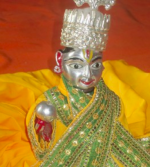


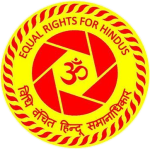



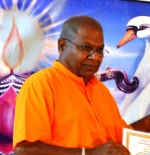


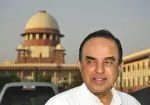



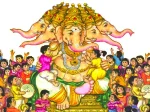



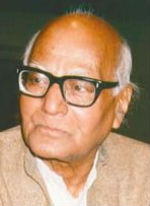






[…] and author N.S. Rajaram comments: “Gupta and his paper were acting as conduits for planting propaganda as news at the bidding of […]
LikeLike
Know your BJP!!!!!!
NDA’s perfidy on foreigner issue – A Surya Prakash
July 31, 2011
A fortnight ago, leaders of the Bharatiya Janata Party were stunned by the caustic remarks of Mr KS Sudarshan, the sarsanghchalak of the Rashtriya Swayamsevak Sangh about the party and the quality of Government provided by the BJP when it was in power. While senior leaders of the BJP including Mr Atal Bihari Vajpayee and Mr LK Advani have preferred silence to a slanging match with the RSS chief, Mr Brajesh Mishra, who was then, the Principal Secretary to the Prime Minister, has chosen to take on Mr Sudarshan.
Mr Mishra was particularly piqued by the RSS chief’s accusation that he (Mr Mishra) was aligned to both Ms Gandhi and the BJP. Stung by these remarks, Mr Mishra hit back saying that Mr Sudarshan’s comments were inane and absurd. He told The Indian Express that Mr Sudarshan was prone to making wild, fictitious allegations.
Is Mr Sudarshan completely off the mark or is there some basis for his accusations against the BJP’s top leadership and the NDA Government? Given the raging controversy within the Sangh parivar on these issues, there is need to sift fact from fiction.
The BJP raised the foreigner issue many years ago and made it a key campaign point in the run-up to the 1994 as well as the 2004 elections. Meeting after meeting, leaders of this party told voters that for the sake of national pride and national security, they must ensure that only a natural-born Indian headed the Union Government. Ms Sonia Gandhi, by virtue of her Italian origin, was unfit to be the prime minister, they said. Given these assertions, the general perception was that the party was committed to the position that naturalised citizens should be kept out of constitutional offices. Available evidence suggests that this is more fiction than fact.
It may surprise readers to know that despite this public posturing, the BJP-led Government took deliberate steps to clear the way for foreigners. Further, while the people were made to believe that the party was fighting a political battle with Ms Sonia Gandhi and people around her, elements in that Government were shielding some of her friends.
There are three reasons why I say this: (i) The cunningly executed amendment of the Citizenship Act to remove a major obstacle in the path of naturalised citizens seeking political office in India; (ii) the NDA Government’s preposterous assertions in an affidavit before the Delhi High Court in a case pertaining to Ms Gandhi’s citizenship; and (iii) the NDA Government’s refusal to grant permission to the Central Bureau of Investigation (CBI) to prosecute Mr Satish Sharma in respect of cases pertaining to petrol pump allotments made by him.
While the world at large believed that the BJP leadership stood committed to barring naturalised citizens from constitutional offices, the Government led by it pushed through the Citizenship (Amendment) Bill, 2003, in the Rajya Sabha on December 18, 2003. It was introduced in the Lok Sabha the very next day and passed by that House on December 22. Thereafter, the Government acted hastily to obtain the President’s assent on January 7, 2004.
The Statement of Objects and Reasons appended to the Bill claimed that it had two main purposes: Creation of a new category of citizens called Overseas Citizens, to grant dual citizenship to the Indian diaspora, and introduction of a scheme for compulsory registration of every citizen of India and issuance of national identity cards. These objectives were indeed laudable, but embedded in these provisions was a politically significant pro-foreigner provision, which the Statement of Objects made no mention of!
The amendment, which had the effect of weakening the case against naturalised citizens like Ms Sonia Gandhi, was that relating to Section 5 of the Act. The section refers to a category of citizens called Citizens by Registration, which includes foreigners who marry Indian citizens. Section 5 said that subject to such conditions and restrictions as may be prescribed, such persons could be granted citizenship. This Section also had a proviso which was most inconvenient for Citizens by Registration. It said: “Provided that in prescribing the conditions and restrictions subject to which persons of any such country may be registered as citizens of India under this clause, the Central Government shall have due regard to the conditions subject to which citizens of India may, by law or practice of that country, become citizens of that country by registration.”
Deciphering this mumbo-jumbo: With such a law coming into force, if a foreigner marries an Indian citizen and applies for Indian citizenship, the Government should, while granting citizenship to that person, impose such conditions and restrictions as may be imposed on an Indian seeking citizenship under similar circumstances in the applicant’s country of origin. In other words, this proviso makes it incumbent on the Government to ensure reciprocity to ensure that a Citizen by Registration does not acquire civil and political rights which are not available to Indians seeking citizenship in the applicant’s country. Strange but true, the Citizenship (Amendment) Bill deleted this important proviso removing the biggest legal impediment faced by foreigners nurturing political ambitions. The NDA could not have given a better gift to Ms Gandhi! Why did the NDA Government remove this provision? Why was it done in stealth? Who in the Government was batting for Ms Gandhi?
That the Government’s intentions were not sanguine are obvious from the Statement of Objects and Reasons that was appended to that Bill. Apart from the fact that it made no reference to the deletion of this important proviso, it actually tried to mislead Members of Parliament and citizens by saying that the purpose of the amending bill was to make acquisition of Indian citizenship by registration and naturalisation more stringent!
The other act of the BJP-led Government which ran contrary to its public utterances vis-à-vis the foreigner issue, was the Counter Affidavit filed by the Central Government before the Delhi High Court on September 5, 2001, in the Rashtriya Mukti Morcha Case. In this affidavit, the Government repeatedly asserted that there was only one class of citizens in the country. Once citizenship is acquired, there remained no distinction in the citizens thereafter, it said. This assertion, which is blatantly false, was made 17 times in the said Affidavit.
Anyone who reads ‘The Citizenship Act, 1955′ can see the distinction between Citizens by Birth and other category of citizens. While citizenship is permanent for Citizens by Birth, it is impermanent in respect of Citizens by Registration and Citizens by Naturalisation. No Government has the power to interfere with the citizenship of a Citizen by Birth.
However, the citizenship of those who come under the other categories is subject to conditions and restrictions. These citizens have to comply with the conditions stipulated in Section 10 of the Act at all times. Should citizens falling under these categories violate these provisions, their citizenship can be cancelled. Further, this affidavit was filed on September 5, 2001, when the proviso to Section 5 of the Act (reciprocity clause) was still intact. Therefore, the argument, “There is no distinction among different categories of citizens,” was, to say the least, preposterous.
Finally, a word on the NDA Government’s kindness towards Ms Gandhi’s friends. The most glaring example was the Government’s refusal to grant permission to the CBI to prosecute Mr Satish Sharma. While its own minister Mr Ram Naik was pilloried by the Congress party for favouring friends in the allotment of petrol pumps, the BJP was unwilling to permit the CBI to proceed against former Petroleum Minister Satish Sharma, who faced similar charges.
Who in the NDA Government had put a protective shield around Satish Sharma? Who was behind the hidden agenda in the Citizenship (Amendment) Bill, 2003 and the affidavit? There are obviously some embedded Sonia-men in the BJP. The BJP cannot hope to retrieve its lost ground unless its top leadership is ready to identify those who betrayed the cause, and weed them out.
(Courtesy: The Pioneer; April 26, 2005)
LikeLike
Thank you.
LikeLike
No, it is in the Hitopadesh written by Kavi Narayan
LikeLike
There is nothing inexplicable in Brajesh Mishra receiving the Padma Award in the UPA regime.Being the the son of a former Congress chief minister of MP DP Mishra, he was instrumental in diluting the bofors scandal thereby saving the Italian Congress chief Sonia and others culprits in the bofors scandal. The result was a Padma Award to Brajesh Mishra for his service to the traitor that is Sonia. It is interesting that Vajpayee could find none but Brajesh Mishra as his Principal Secretary. Bloody anti-Hindu Vajpayee.
LikeLike
yes, we have a fable in our Panchatantra (or is it the Jataka Tales?) of a frog king who invited a snake into his well to sort out the impudent young frogs in his kingdom. He was happy so long as the snake had one these frog for food, until at last it was the turn of the snake to have the king himself for food!
LikeLike
Historically, putting a strong man in power to bring order into government and end corruption and abuses by the bureaucracy started with the Romans. This is fine in so far as it goes. But as the Romans soon learned, the strong man could not be got rid of after his job was done. So Rome became a imperial dictatorship though it had started out as a republic. A people who don’t learn from history end up repeating the mistakes of history.
LikeLike
Wow! That is comprehensive coverage indeed. And I did not know that The Hindu had published this report of Rahul Ghandey’s arrest in Boston in 2001 itself! The 1st time I had come to know of it was when it was reported that an Indian organisation in US of A had put up some billboards on the eve of Sonia Ghandey’s visit to US to address the UN General Assembly on Mahatma Gandhiji’s birth anniversary. I confronted the BJP candidate (during the last General elections) with the question whether the report that the PMO had intervened then to get Rahul released was true or not. The candidate gave a vague reply like these small things happen always in politics!
Now more than the truth coming out in Rahul’s case (may or may not be legally, but that is immaterial, isn’t it?), a by product of the IE report is that the number of people who have expressed the desire to see a coup happen!
LikeLike